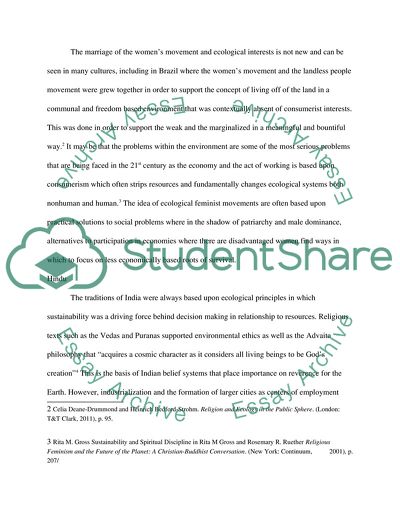Cite this document
(Ecology, Feminism, and the Concern of Religious Women Essay Example | Topics and Well Written Essays - 1500 words - 3, n.d.)
Ecology, Feminism, and the Concern of Religious Women Essay Example | Topics and Well Written Essays - 1500 words - 3. https://studentshare.org/religion-and-theology/1794734-religion-feminism-and-environmentalism
Ecology, Feminism, and the Concern of Religious Women Essay Example | Topics and Well Written Essays - 1500 words - 3. https://studentshare.org/religion-and-theology/1794734-religion-feminism-and-environmentalism
(Ecology, Feminism, and the Concern of Religious Women Essay Example | Topics and Well Written Essays - 1500 Words - 3)
Ecology, Feminism, and the Concern of Religious Women Essay Example | Topics and Well Written Essays - 1500 Words - 3. https://studentshare.org/religion-and-theology/1794734-religion-feminism-and-environmentalism.
Ecology, Feminism, and the Concern of Religious Women Essay Example | Topics and Well Written Essays - 1500 Words - 3. https://studentshare.org/religion-and-theology/1794734-religion-feminism-and-environmentalism.
“Ecology, Feminism, and the Concern of Religious Women Essay Example | Topics and Well Written Essays - 1500 Words - 3”. https://studentshare.org/religion-and-theology/1794734-religion-feminism-and-environmentalism.


